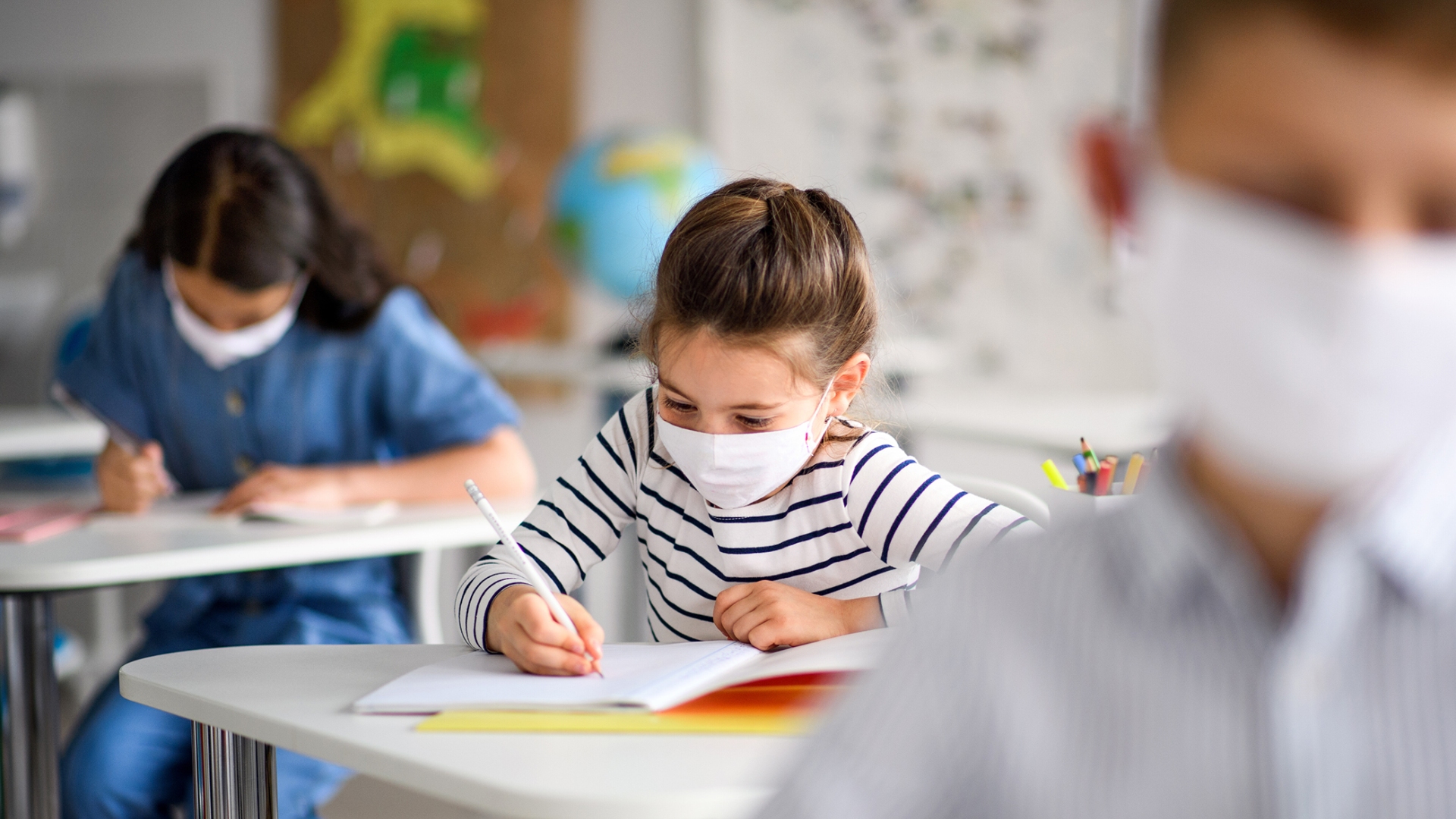Children Wearing Face Masks And The Effects On Their Health: Along with physically distancing and good hand washing, masks or cloth face coverings are an effective way to help prevent the spread of COVID-19.
Some parents may have questions and concerns about cloth face coverings, and we’re here to help.
RELATED: Children COVID-19 Cases Rising
Here are 5 common questions about kids and masks, along with evidence-based information that will put your mind at ease:
1. Can wearing a mask make it harder for my child to breathe?
There have been concerns that cloth face coverings can reduce oxygen intake, and can lead to low blood oxygen levels, known as hypoxemia.
However, cloth masks are made from breathable materials that will not block the oxygen your child needs. Masks will not affect your child’s ability to focus or learn in school.
The vast majority of children age 2 or older can safely wear a cloth face covering for extended periods of time, such as the school day or at child care.
This includes children with many medical conditions.
2. Can masks interfere with a child’s lung development?
No, wearing a cloth face covering will not affect your child’s lungs from developing normally.
This is because oxygen flows through and around the mask, while blocking the spray of spit and respiratory droplets that may contain the virus.
Keeping your child’s lungs healthy is important, which includes preventing infections like COVID-19.
3. Do masks trap the carbon dioxide that we normally breathe out?
No. There have been false reports that cloth face coverings can lead to carbon dioxide poisoning (known as hypercapnia) from re-breathing the air we normally breathe out.
But this is not true. Carbon dioxide molecules are very tiny, even smaller than respiratory droplets. They cannot be trapped by breathable materials like cloth masks.
In fact, surgeons wear tight fitting masks all day as part of their jobs, without any harm.
However, children under 2 years of age should not wear masks since they may not be able to remove them without help.
Children with severe breathing problems or cognitive impairments may also have a hard time tolerating a face mask and extra precautions may be needed.
4. Can masks lead to a weaker immune system by putting the body under stress?
No. Wearing a cloth face covering does not weaken your immune system or increase your chances of getting sick if exposed to the COVID-19 virus.
Wearing a cloth face covering, even if you do not have symptoms of COVID-19, helps prevent the virus from spreading.
5. How do masks prevent the spread of COVID-19?
When worn correctly, cloth masks create a barrier that reduces the spray of a person’s spit and respiratory droplets.
These droplets play a key role in the spread of COVID-19 because they can carry SARS-CoV-2, the virus that causes COVID-19.
Masks also can protect you from others who may have coronavirus but are not showing symptoms and who could come within 6 feet of you, which is how far respiratory droplets can travel when people sneeze or cough or raise their voices.
In order to be effective, masks should:
- Cover both the nose and mouth
- Fit snugly but comfortably against the sides of the face
- Be secured with ear loops or ties
- Have multiple layers of fabric
- Allow for unrestricted breathing
- Be washed and dried carefully after use
Another benefit of wearing masks is that they may keep people from touching their mouths and faces, which is another way COVID-19 can be spread.
There are many types of masks, but cloths masks are best choice for the general public and families should choose a mask that is most comfortable while still providing a secure fit.
Remember
Cloth face coverings are an important tool in preventing the spread of COVID-19. They are safe and effective for children over the age of 2 years and adults.
Cloth face coverings are especially important when social distancing, or keeping 6 feet away from others, is hard to do.
Washing hands, staying home and physical distancing are still the best ways to keep your family safe from COVID-19.
But when you go outside your home, wearing a cloth face covering will help keep you and others safe.
Don’t hesitate to talk with your child’s pediatrician if you have any questions about your child wearing cloth face coverings.
About Dr. Dickinson

Kimberly W. Dickinson, MD, MPH, is a pediatric pulmonary fellow at Johns Hopkins University in Baltimore, MD and a member of the AAP Section on Pediatric Pulmonology and Sleep Medicine Trainee Subcommittee.
About Dr. Guilbert

Theresa W. Guilbert, MD, MS, FAAP, is a Professor of Pediatrics at the University of Cincinnati and the Director of the Cincinnati Children’s Hospital Medical Center Asthma Center in the Pulmonary Division.
She has 20 years of experience in providing clinical care to children and adolescents with preschool, childhood and severe asthma and conducting clinical and epidemiologic research.
She is a member of the AAP Section on Pediatric Pulmonology and Sleep Medicine Committee.
Source American Academy of Pediatrics Section on Pulmonary and Sleep Medicine





